A progressive breath of fresh air for MI-07
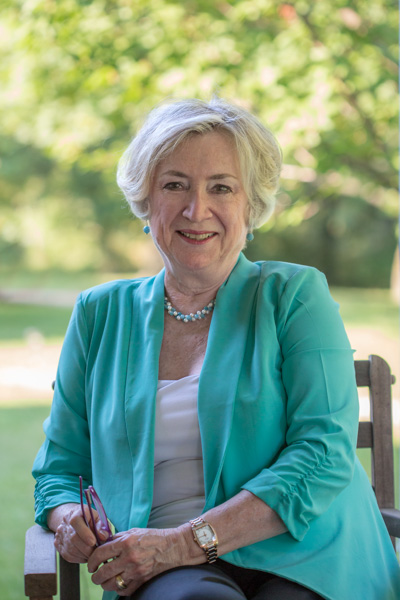 On July 18th, Pam Byrnes, the former Michigan House Speaker Pro Tem, announced her candidacy for Michigan’s 7th District. MI-07 is currently represented by former pastor Tim Walberg, a man who calls himself “the original tea partier”. The district is a rather convoluted mess of gerrymandering running from the west side of Washtenaw County west to Jackson and north to the west side of Lansing, skillfully avoiding any Democratic strongholds. Despite this, Walberg lost his seat to Democrat Mark Schauer in 2008 only to take it back again in 2010. It is considered very competitive race and is being targeted vigorously by the Democratic Congressional Campaign Committee who recruited Byrnes to run.
On July 18th, Pam Byrnes, the former Michigan House Speaker Pro Tem, announced her candidacy for Michigan’s 7th District. MI-07 is currently represented by former pastor Tim Walberg, a man who calls himself “the original tea partier”. The district is a rather convoluted mess of gerrymandering running from the west side of Washtenaw County west to Jackson and north to the west side of Lansing, skillfully avoiding any Democratic strongholds. Despite this, Walberg lost his seat to Democrat Mark Schauer in 2008 only to take it back again in 2010. It is considered very competitive race and is being targeted vigorously by the Democratic Congressional Campaign Committee who recruited Byrnes to run.
Byrnes lives with her husband Kent Brown on a farm north of Chelsea. Anne and I visited them there last week for a chat. As we pulled into the long curving driveway, we were greeted by a small pack of donkeys. In fact, Byrnes and Brown have over a dozen donkeys, mostly minatures, on their farm.
In addition to her time as a state House Representative, Pam Byrnes is one of the founders of the Western Washtenaw Dems Democratic Club, a very active club that has helped cultivate numerous local and state candidates and provides ground troops for elections every two years.
Here is our conversation. All photos by Anne C. Savage.
Tell me about your political career and what’s led you to the place where you are today.
Well, you’re going back to junior high school! I parents were Republican, I was raised in a Republican household. Much like Hillary Clinton, actually. We come from the Midwest, we come from moderate Republican households. But I got involved in politics because my dad majored in History. We talked about politics at the dinner table. When I got to college, I joined the Young Republicans at Stephens College, a women’s college in Columbia, Missouri.
I went to the Republican convention in 1968 to work for Nelson Rockefeller. I was a Rockefeller girl. That was really my first experience in politics.
Shortly after that, I went to Washington, D.C. to work for the National Security Agency, the NSA. That was around the time of the march on Washington, the Vietnam War, the Civil Rights movement, Nixon… But Kent State, I think Kent State was what did it for me. It was horrible. Of course there was that iconic picture of the students who were killed by the National Guard. After that, my allegiance became more Democratic.
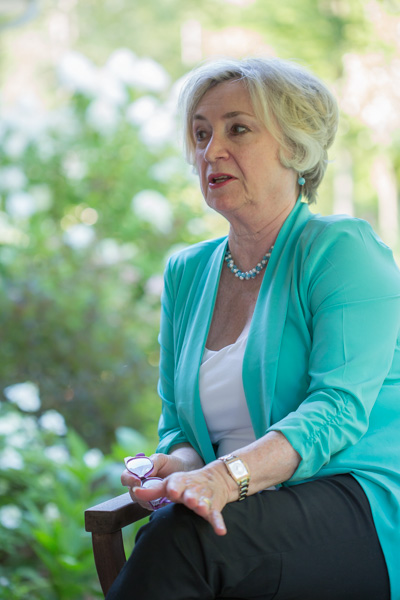
Later on, when I moved to Michigan, I worked for Jimmy Carter but after that, I focused mainly on my career and raising my daughter. Then, at some point, someone approached me about running for probate judge because there was going to be this opening. And that, really, was my first foray into politics. At that point I knew nothing about running for office and the election results showed it. I think we had campaign pencils or something and we thought that was going to win the election for us!
In the mid 80s, I moved my practice to Ypsilanti and became very involved in a number of community organizations there like the Central Business Community which was their local downtown business group, the Chamber of Commerce, Heritage Festival planning, things like that. That was when I met my husband Kent, while I was working for the CBC. I was invited to join, went to one meeting, and — you know how these organizations work — I was elected to be on the committee. Then I was elected at the first committee meeting to be the chair. Kent was the previous chair.
So, how did you end up in Michigan?
Well, I went to Stevens College for the first two years of my undergraduate and then finished up at the University of Michigan. My degree was in Far Eastern studies. My first job was actually translating Japanese for the NSA.
Interesting. So, after that you got a law degree?
Right. I did that at night while I was working for the NSA at the University of Maryland. I learned about the program from a couple we played bridge with. I had to work because I needed the income so that’s what I did and I finished in four years.
When we moved to Michigan, I took the bar exam here and went to work for the Friend of the Court as a staff attorney and quickly rose to be the director of the Friend of the Court.
How did you make the jump from Ypsilanti to western Washtenaw?
After Kent and I got married, I decided I wanted to live in the country so we went driving one day in 1994 and found this property. We bought it and have lived here ever since.
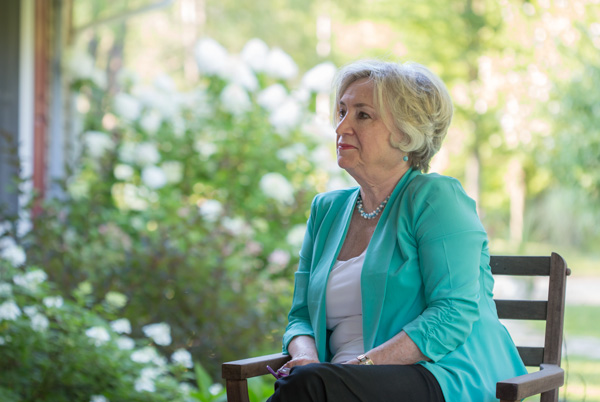
So, how did your political career develop from there?
In 1996, the county treasurer resigned and I applied to be appointed. I wasn’t selected but I was recruited by Alma Wheeler Smith to run for the seat in the next primary. I didn’t win but it was a great experience and I met a lot of great people. After that came term limits and the local state House seat opened up in 1998. It was a very difficult and contentious primary and I lost by 200 votes. Rebekah Warren and I split the women’s vote and John Hansen won.
After redistricting in 2000, John decided to run for senate so I ran again in the 52nd district. I won my primary but was defeated in general election by Gene DeRossett.
Well, 2004 rolls around and the seat is open again. I had decided I was not going to run again. But my husband told me he really thought I should. I had a lot of name recognition and had put in all of the work, and he convinced me to run again. Again there was a primary and this time I was successful. I made it through the primary and then won the general election, too. In the process, we had done some polling which was very helpful. One of the things we learned is that the 52nd district is much more pro-choice than people had presumed and that helped me quite a bit.
It was a very competitive seat and in 2006 I went through what Gretchen Driskell is going through now.
With the Republicans pissed off at losing it and gunning to get it back?
Exactly. They come gunning for you. Of course the Republicans restricted the amount of legislation that I was allowed to support; they made it very, very difficult. But our minority leader at the time was Dianne Byrum and she had a great incumbent protection program. You just go out and you are knocking doors all the time.
That’s what Gretchen’s doing right now.
Yeah, exactly. I did it quite a bit. I started in March or April, as soon as the weather was decent, and I was out there knocking doors, getting to know people, introducing myself to them. I must have hit my district ten times. We did a LOT of walking! But it pays off, it really does.
In 2004, I was put on the Transportation Committee but, like Gretchen, I couldn’t do too much. But, once I was reelected, it was a whole different story. In 2006, we won. We were in the majority. And we actually didn’t know how to handle it because we didn’t expect it! We were just trying to get to to 50:50 so that we could have a joint legislature. We had leadership issues and we couldn’t decide who was going to be on what committees. Everybody told me I should get on the Appropriations Committee so I asked to be put on that committee. Then they asked me to chair the Higher Education subcommittee which was also a very good experience, getting to know all of our universities and the importance of research corridors, and all of our public universities which are some of the best in the nation. We have a very good public university system in Michigan as long as it’s adequately supported.
At that time, we were still doing some increases for higher ed. Now that’s not the case. Governor Snyder cut that 15% and then he gave back three.
That’s why I have been calling the ‘fake concession’. At what point did you form the Western Washtenaw Dems?
That was in 2000. Dianne Byrum was running for Congress and we were walking with her, we had used our donkeys in the parades with her and also with Debbie Stabenow. At that time I had been appointed to the Road Commission which was a great experience. It really opened up the door on transportation issues for me. The importance of infrastructure has become extremely important to me as well as commerce and economic issues.
There were several us like Barb Fuller and others. We had been having discussions about it so I said, “Let’s just do it!”
My understanding that forming was the Western Washtenaw Dems was somewhat a response to the center of gravity for Democrats in Washtenaw County was in Ann Arbor and people outside of Ann Arbor didn’t feel like they were being included or represented the way they wanted to be.
It was partly that and also, I could sense, when we were walking in parades with Diane and Debbie, that there were Democrats out here. You could just see that there was energy from the crowds. We had our fist meeting at Cousins in Dexter and something like 30 or 40 people showed up. It was fabulous! So we formed the Western Washtenaw Dems and it was mainly a mix of Dexter people and Chelsea people.
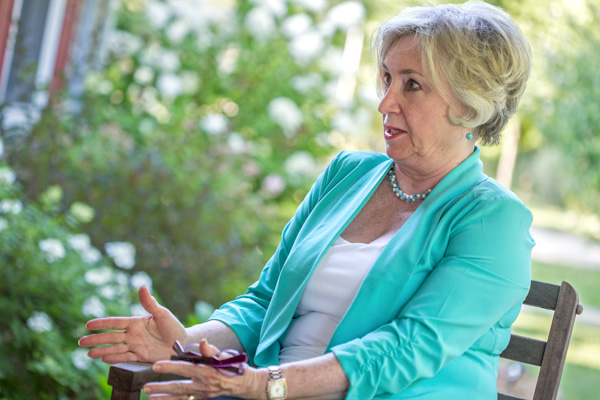
That group seems like a nice incubator for Democratic candidates to run for office.
That was exactly the whole idea, to get people involved. What we were trying to do was to get people involved in all of the townships, organizing precinct delegates like what you’re doing, you have to get down to that level and get people to knock doors and make phone calls. That’s what it takes.
When did you become the House Speaker?
In 2008, I became the Speaker Pro Tem for the last two years of my time in the House. Basically what I did was run the legislative session each day.
After you were term-limited out, I know you ran for senate and lost to Rebekah Warren. Since then, you’ve spent much of your time in China. What took you there?
Well, part of my district was northern Ann Arbor. I became very close to the Chinese community there. I was active with the Detroit Chinese Business Association, the Taiwanese Chamber of Commerce. I became friends with this very large network of people from Asia. One of my friends introduced me to Jun Ni who is a professor of engineering at the University of Michigan Automotive Manufacturing Center. He’s the Dean of the University of Michigan and Shanghai Jiao Tong University Joint Institute. I went through a very rigorous interview process which included going to Shanghai and giving a presentation about myself. They were very concerned that I didn’t know much about the Chinese culture and the Chinese language but Jun didn’t care about that. He wanted somebody who was more western to bring a more western approach to management.
I got the job which required me to live in China. That meant that Kent stayed here and I had to leave my grandchildren behind which made it very difficult. But I did it and I’m really glad I did. It was an excellent experience learning how the Chinese operate, learning how they think. Many things are very exemplary. The way they focus on education and how they have very strong family units where the extended family is always together.
One interesting thing is that women have to retire at age 55 there and men have to retire at age 60. So, I just stuck out! Not just because of my age but my blonde hair, and I was western, and I was working full time. They just couldn’t understand why I wasn’t retired and taking trips and doing Tai Chi because over there, that’s what they do.
The misunderstanding of cultures goes both in both directions, I guess.
It does, it does!
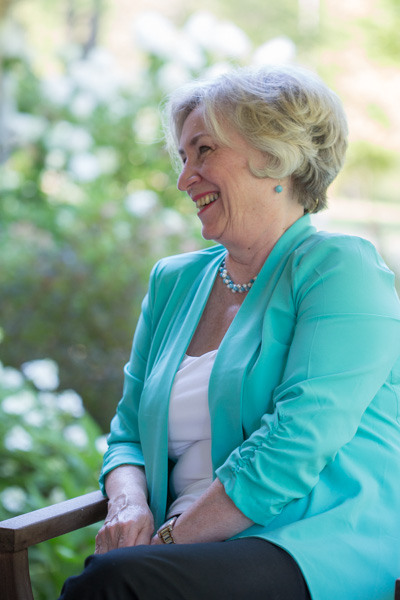
What does the Joint Institute do?
It’s been in existence since 2005. Its board of directors consists of officials from the University of Michigan — the president, the provost, dean of the College of Engineering, dean of the medical school, vice president of research — and their counterparts from Shanghai University. They sit on a board that meets twice a year to oversee the general policy. Then there’s what’s called the academic program group which is mainly the professors who decide the curriculum. All of the classes are taught in English and the curriculum is has to meet University of Michigan standards.
It’s purpose is mainly to network students internationally and provide a platform for research in engineering and education for students. Many of the American students who go over have formed Chinese friendships that will last them a lifetime. Also, when they come back here and meet with Chinese students who visit here, they form this great network which I think is very important because the United States and China are the two top economic powers in the world.
They should like each other.
Exactly. They should at least understand each other. Many, many of our American corporations are over in China now and these companies are looking for these students who can step into both worlds.
It’s also a platform for research. The two universities have a research grant for sustainable energy projects and biomedical devices, biomedical research. For me, it was very interesting. I managed a staff 25 Chinese people who had varying levels of fluency in English and helped to teach them the American management model. Everything there is top-down. These rules come down from the communist party and become policy and everyone is told how to operate. We’re bottom-up. In fact, this whole institute was formed from a pilot program between professors and it just blossomed which is bottom-up. I remember a visit from our provost and the Chinese wanted to set up a pilot liberal arts program. Professor Tessler said, “Well, if there are faculty who want to develop it, we’ll do it. But, we’re not going to tell them to do that. They have to create it themselves.” It’s a whole different philosophy on how to run things.
When did you think about this run for the 7th District Congressional seat?
Well, I was home on a visit last spring and I was approached by some people who told me that the Democratic Congressional Campaign Committee (DCCC) was going to be targeting the 7th District. And I said, “Really? What are the numbers?” And that’s when I found out that the numbers were a LOT better than I thought. I talked to Mark Schauer and he was extremely enthusiastic and encouraging. And, after I talked to him, the DCCC called and then they were here visiting me and it just kind of snowballed from there. I had to go back to China so we did Skype calls. On my next visit home, DCCC Chairman Steve Israel called me and asked, “What can we do to make sure you’ll run?” and he was very enthusiastic. So, I decided to do it.
Kurt Haskell didn’t actually do that bad in 2012 considering how lame his campaign was.
Exactly. And Debbie [Stabenow] did very well in this district, she won about 55% of the vote in 2012 which means that there are a lot of people here that will vote so we just have to get these voters out so that’s my job. The month I’ve been out about in the district, it’s become very clear that people are unhappy with our current Representative. He epitomizes the current gridlock in Washington.
They seem almost proud of it, like they are successful if they have just shut everything down.
Well, I don’t think that’s what the people want. They want someone who is responsive, someone who is going to listen to them and move things forward. I have a track record of doing that and I just have to convey that message to our voters.
How do you plan to address Americans for Prosperity and the Club for Growth and all this outside money that Walberg seems to draw to himself?
I’m just going to continue to focus on my positive message. I’m sure they’re going to attack me, for what reasons I don’t know, but I’m not going to react to it. I’m just going to focus on who I am, what my track record is, and what I hope to do when I get to Washington.
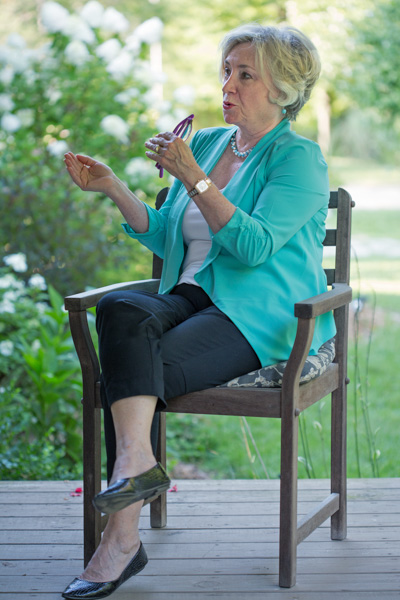
How’s fundraising going?
Good! Very good, in fact. We’re on target and people are very supportive and they’re very happy I’m running.
You’re doing a tour of the district coming up, right?
Yes. It’s the weekend of September 7th, we’re doing a seven-county swing starting off in Eaton County, then going down to Branch and ending up in Jackson one day. The next day we go to Monroe, then Hillsdale, then Adrian, and then we have the final event in Chelsea on Monday night, September 9th. So, please come! Monday night! It’s at the Chelsea River Gallery.
How is your name recognition in other parts of the district?
They don’t know me. That’s going to be the biggest challenge and that’s my focus.
I would think being the House Speaker Pro Tem had to help a little bit.
I just have to make sure that people know that Byrnes is spelled B-Y-R-N-E-S, the Irish spelling of Byrnes!
We were at a recent political event and the people there were very happy with my positive message so it’s very exciting.
Looking back at your career in the House, what would say were the top achievements that set the stage for your candidacy?
I think is was bringing people together to find a solution on some tough pieces of legislation. One was the Aerotropolis which was the economic development zone around Detroit Metro Airport and Willow Run Airport. Ryan, one of my staffers, likes to recount the story of when I had the various stakeholders in my office and I purposely got a round table. They had a rectangular table and I had them replace it with a round table because a round table just makes more sense. There is no “head” and everyone is looking at each other. I set them all around and they were all yelling and screaming and I said, “You guys, we’re going to get this stuff settled,” and we did. We were able to move the legislation forward.
Focusing on the transportation hub in southeast Michigan is extremely important. Twenty-five percent of North American trade goes through Michigan. We’ve got this natural hub here that we really need to be developing. The bridge from Canada is part of it, the Metro airport, we could have a huge logistics hub here in Michigan.
And we’re not taking advantage of it?
Right. We’re not taking advantage of it. We’re also still a donor state when it comes to transportation dollars so I want to go down there to make sure we’re getting more dollars coming back to our state. Infrastructure is really important.
How do you work with people who won’t compromise? That’s the reality right now. You hear John Dingell talk about it all the time, about how things have changed so much and these new lawmakers won’t compromise on anything. Is there a way to work with these people?
Well, I’m hoping that their constituents won’t reelect them. Maybe people will be so fed up that they won’t reelect them. I hope that’s the case in this district, that they’ll be fed up enough with that attitude. It’s just not helpful, it’s not moving us forward. You’re going backward. What’s the sense? We’re in a global economy and some of these people don’t realize that. We’re not competing.
We have to be educating our kids. We have to be sure they can compete. That’s why we’ve got these H1 visas where we have people coming in to this country because we don’t have workers here that can fill those jobs because they’re not trained and they don’t have the education.
Anything else from your House experience that you think has prepared you to be a member of Congress?
I think that the Cottage Food Bill which allows people to do breads and other small items at the local farmers market. Now they’ve even extended the amount of money you can earn from that source of income.
It’s true entrepreneurship.
It is!
So, there was that legislation and then there was the complete streets legislation that I was able to work through. But the Cottage Food bill I worked with John Proos who was a Republican. I got it through the House, he got it through the Senate.
What do you see as your goal as a member of Congress? What’s our path forward?
I really believe we need to be strengthening our middle class because that is the key to the vitality of our economy. We see the gap growing between the rich and the poor and we don’t have the economic wherewithal for this middle class. So, we need to be providing economic opportunity, whether it’s an agricultural or manufacturing base which we have here in Michigan. We just have to be doing what we can to promote that.
In the recent Michigan Farm Bureau newsletter, they were talking about the problem with migrant farm workers. The migrants are afraid to come up here because of the profiling that’s being done, so we have crops going to waste. Blueberries. Asparagus. Going to waste because they don’t have the workers to harvest them.
So, how do you do that? How do you fix that?
Well, the Michigan Farm Bureau is not happy with what the House Republicans are doing with regard to immigration reform as it pertains to migrant farm workers. The Senate bill isn’t perfect but the House is trying to piecemeal the migrant worker issue. So they sent a letter to House Republicans telling them that, if we don’t address this, we are going to be importing our food. They are sounding the alarm on this. You have got to have cooler heads prevail on this issue than we have in the Republican-led House right now.
Pam Byrnes website can be found HERE. You can make a donation to her important campaign HERE. Be sure to follow her on Twitter and put a “like” on her Facebook page, as well.



